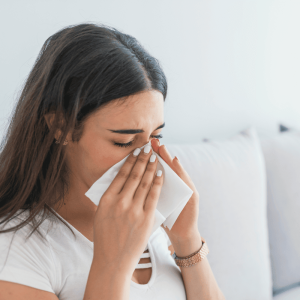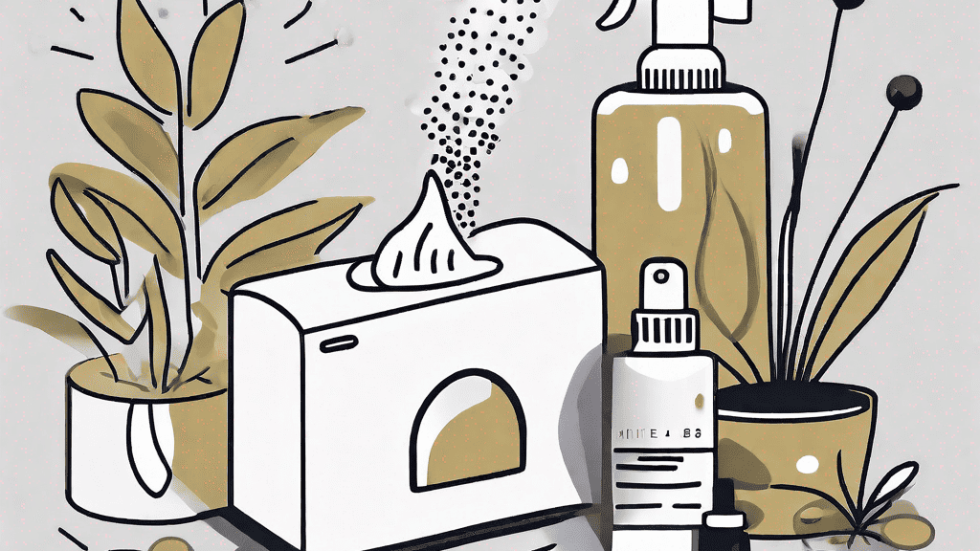Understanding Allergic Rhinitis
What is Allergic Rhinitis?
Common Causes of Allergic Rhinitis
There are several common causes of allergic rhinitis. Seasonal allergic rhinitis occurs when individuals are exposed to outdoor allergens such as tree pollen, grass pollen, or weed pollen. The arrival of spring brings with it a wave of pollen, triggering sneezing fits and nasal congestion for those with seasonal allergic rhinitis. On the other hand, perennial allergic rhinitis occurs throughout the year and can be triggered by indoor allergens such as dust mites, pet dander, or mold spores. Imagine seeking refuge indoors from the seasonal allergens, only to find yourself still battling the symptoms due to the presence of indoor triggers. It’s important to note that allergic rhinitis can also be caused by a combination of both seasonal and perennial allergens, making it a year-round struggle for some individuals.
Symptoms to Look Out For
If you suspect that you may have allergic rhinitis, it’s important to be able to identify the symptoms. These symptoms typically include nasal congestion, sneezing, itching, and a runny nose. Additionally, you may experience red, itchy, or watery eyes, as well as coughing or a sore throat. Imagine waking up with a congested nose, feeling the need to sneeze every few minutes. Your eyes are red and itchy, and you find yourself constantly reaching for tissues to wipe away the never-ending runny nose. The constant coughing and scratchy throat add to the discomfort, making it difficult to enjoy your day or get a good night’s sleep. It’s crucial to recognize these symptoms and seek appropriate medical advice to manage allergic rhinitis effectively.

Diagnosis of Allergic Rhinitis
When to See a Doctor
Diagnostic Tests for Allergic Rhinitis
To diagnose allergic rhinitis, your doctor may recommend certain tests, such as skin prick tests or blood tests. These tests can determine the specific allergens that trigger your symptoms. Skin prick tests involve placing small amounts of common allergens on your skin and then pricking or scratching the skin to see if a reaction occurs. Blood tests, on the other hand, measure the levels of specific antibodies in your blood that are associated with allergic reactions. Once identified, you can take steps to avoid these allergens and manage your allergic rhinitis more effectively. This may involve making changes to your environment, such as using air purifiers or avoiding outdoor activities during peak pollen seasons. Your healthcare professional may also recommend medications, such as antihistamines or nasal corticosteroids, to help alleviate your symptoms.
It is important to note that allergic rhinitis is a chronic condition that may require long-term management. Regular follow-up visits with your healthcare professional are essential to monitor your symptoms, adjust your treatment plan if needed, and ensure optimal control of your allergic rhinitis.
Treatment Options for Allergic Rhinitis
Medications for Allergic Rhinitis
Medications for allergic rhinitis can help relieve your symptoms and improve your quality of life. Over-the-counter antihistamines, nasal sprays, and eye drops can be effective in reducing sneezing, itching, and congestion. These medications work by blocking the release of histamine, a chemical that is responsible for triggering allergic reactions. It is important to note that while over-the-counter medications can provide temporary relief, they may not be suitable for everyone. Some individuals may require stronger prescription medications to manage their symptoms effectively. Corticosteroids, for example, are often prescribed for severe cases of allergic rhinitis. These medications work by reducing inflammation in the nasal passages, thereby alleviating congestion and other symptoms.
Non-Pharmaceutical Treatments
In addition to medications, there are non-pharmaceutical treatments that can help manage allergic rhinitis symptoms. These treatments focus on reducing exposure to allergens and improving overall nasal health. Nasal irrigation with saline solution is a popular non-pharmaceutical treatment for allergic rhinitis. This involves flushing out the nasal passages with a saltwater solution, which helps remove allergens and mucus, providing relief from congestion and reducing the frequency of sneezing.
Another non-pharmaceutical treatment option is the use of air filters. These devices can help remove allergens from the air, reducing the likelihood of triggering an allergic reaction.
Additionally, maintaining optimal indoor humidity levels can also help minimize exposure to allergens such as dust mites and mold.
Long-Term Management Strategies
While medications and non-pharmaceutical treatments can provide relief from allergic rhinitis symptoms, it’s important to implement long-term management strategies. These strategies aim to minimize exposure to allergens and prevent the onset of symptoms.
One of the key long-term management strategies is identifying and avoiding triggers. This may involve staying indoors during peak pollen seasons, keeping pets out of certain areas of your home, and regularly cleaning your living space to minimize dust and mold buildup. By taking these proactive steps, you can significantly reduce the frequency and severity of allergic rhinitis symptoms. It is also important to note that allergic rhinitis can vary from person to person, and what works for one individual may not work for another. Therefore, it is essential to work closely with your healthcare provider to develop a personalized treatment plan that addresses your specific needs and concerns.
In conclusion, allergic rhinitis can be effectively managed with a combination of medications, non-pharmaceutical treatments, and long-term management strategies. By taking a comprehensive approach to treatment, individuals with allergic rhinitis can experience significant relief from their symptoms and enjoy an improved quality of life.


